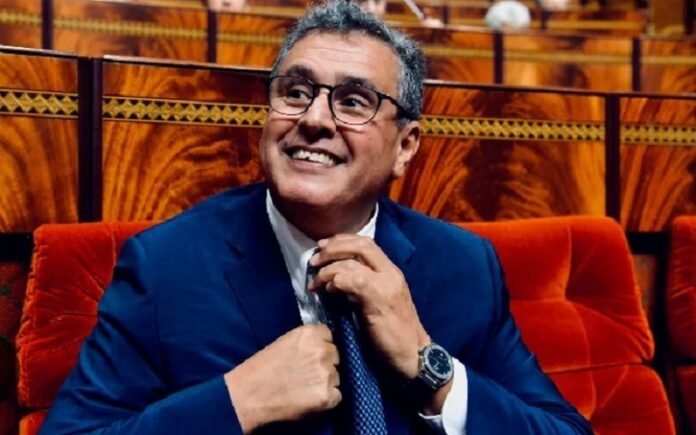An analytical reading of Mustapha El Fenn’s tweet… and a question of who is really supervising the upcoming elections?
In a tweet that generated significant reactions on social media, journalist Mustapha El Fenn posed a profound question about the meaning behind King Mohammed VI tasking the Minister of Interior, Abdelouafi Laftit, with supervising the preparation of the upcoming elections — rather than the Head of Government, Aziz Akhannouch — a shift that departs from the norm established since the 2011 Constitution.
The return of the Ministry of Interior to center stage
Since the adoption of the 2011 Constitution, it had become customary for the Head of Government to preside over the preparatory meetings for elections, as was the case with Abdelilah Benkirane in 2016 and Saadeddine El Othmani in 2021. However, this new direction, as expressed through a royal directive in the Throne Speech, brings the Ministry of Interior back to the forefront and raises questions about the limits of executive power and the position of the Head of Government within the decision-making equation.
Are we witnessing a “silent return” to the pre-2011 model? Or is this a context-specific move tied to the requirements of the coming phase?
Analyzing the implications of direct royal supervision
When the King himself instructs that elections be overseen by the Ministry of Interior, it carries multiple political and constitutional messages:
-
On one hand, it expresses a desire to manage the electoral process within a framework of state stability and careful transition.
-
On the other, it reignites the debate around the duality of “actual power” versus “constitutional power,” raising questions about the role of the government and its head during this period.
El Fenn’s tweet does more than question the management style — it opens the door to a larger political question: has the country moved past Aziz Akhannouch? Or is this gradual marginalization a sign of a broader restructuring of power centers?
Between reading the tweet and institutional reality
What stands out in Mustapha El Fenn’s analysis is that it avoids reckless political speculation, instead building its hypotheses on proven constitutional precedents, drawing comparisons between what was, and what is possibly intended.
Nevertheless, this new direction should not be interpreted outside its context. There may be contextual factors at play — such as the sensitivity of the current stage, weak confidence in certain partisan actors, or even a prelude to a new political engineering aimed at reordering the scene based on stability first, and effectiveness second.
Conclusion: Who is preparing, and who will be held accountable?
Changing who supervises elections is not just a technical shift — it is a powerful political signal. It requires political actors and observers of public affairs to analyze the moment carefully and stay alert to signs of role redistribution.
And the question remains:
Is the country changing the rules of the political game?
Has the post-Akhannouch phase already begun?
Or is it simply a shift in management style, within the bounds of legitimate royal prerogatives?


